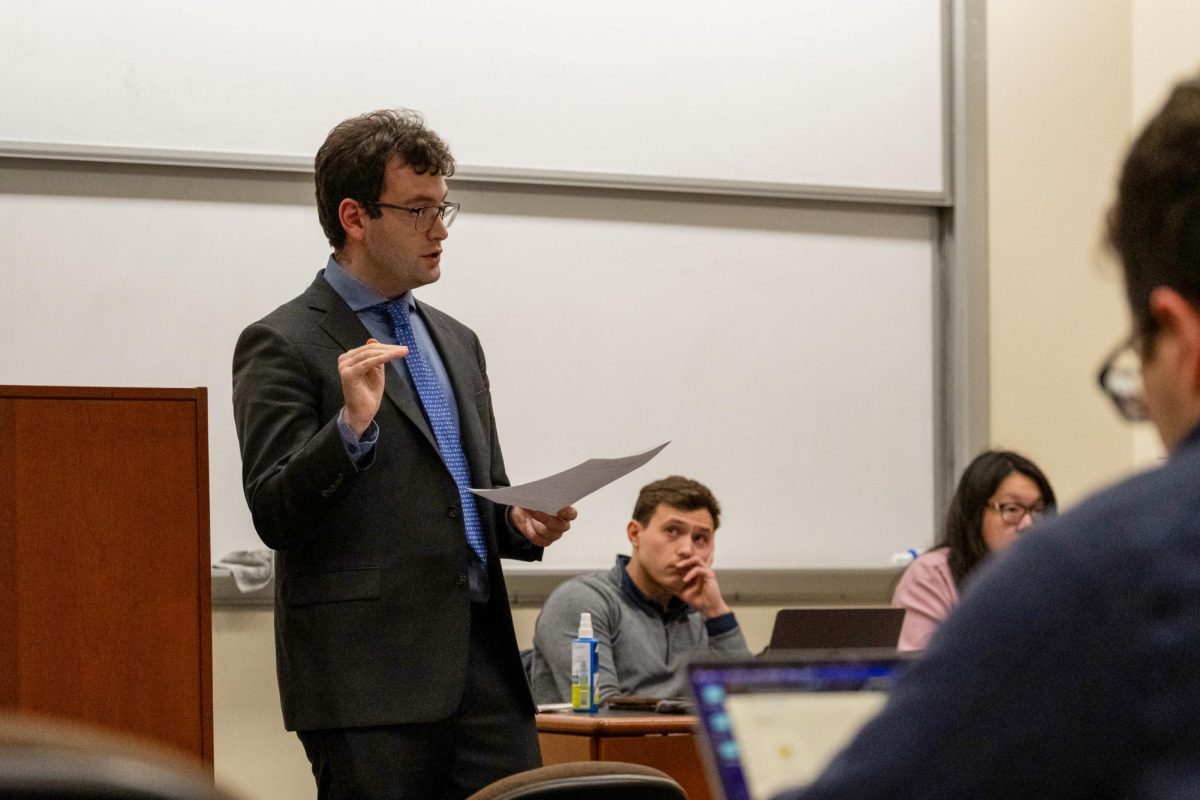
It turns out presidential debates are good for more than just calling opponents losers.
Reporters and political experts discussed the importance of presidential debates – and social media – in a panel discussion at the School of Media and Public Affairs Tuesday.
The panel was part of SMPA’s Silver Anniversary series and was hosted with the Graduate School of Political Management, the GW College Democrats and the GW College Republicans. Media and public affairs professor Steven Roberts moderated the discussion.
Here are a few takeaways from the discussion:
1. Why have presidential debates?
Martha Raddatz, co-anchor of “This Week with George Stephanopoulos” and ABC News chief global affairs correspondent, had an optimistic view of the debates.
She said debates help the public understand where candidates stand on issues, and can give voters clarity. She said debates can also serve as genuine opportunities for candidates to engage in real conversations about the future of the country.
“You learn something from every debate. The presidential debates are profoundly important because you’re down to two people who you really need to know and see where they stand on issues and how they handle the pressure of the debate,” Raddatz said.
2. Significance of format
Frank Fahrenkopf, co-chairman of the Commission on Presidential Debates, which organizes the general election presidential and vice presidential debates, explained that debates are nonpartisan and are conducted without the influence of political parties.
The commission chooses the dates, locations, formats and moderators “without any input whatsoever from the campaigns,” Fahrenkopf said.
Mike McCurry, co-chairman of the Commission on Presidential Debates, said the sole mission of debates is to create a fair presentation of the candidates for voters.
“The commission was created as a nonpartisan exercise that would be open regardless of political party or affiliation of the candidates,” McCurry said.
Fahrenkopf & McCurry agree: parties that sue @debates for exclusion simply need to find a better candidate #decision2016
— SMPA at GWU (@SMPAGWU) March 23, 2016
3. The role of social media
McCurry said that social media is transforming the traditional town hall-style debate because voters have more access to candidates than ever before.
“We now have something through social media which is unprecedented: the ability to aggregate and curate a large number of questions that come from people who are engaged in conversation on the internet,” McCurry said.
Still, he said commission members know not everyone has access to social media – so they hope debates can reach a broader audience.
“Our only job is to make these debates as educationally important and accessible as they can they possibly be to the American people. The more information, the more that the candidates get to talk to each other and about themselves and about their differences and about their different views is what this is all about,” McCurry said.



